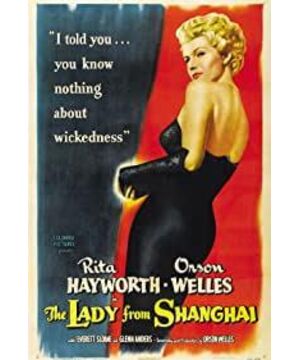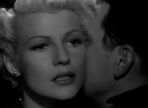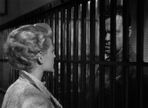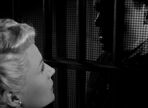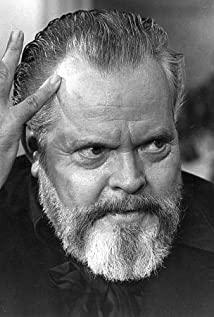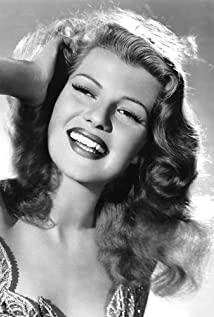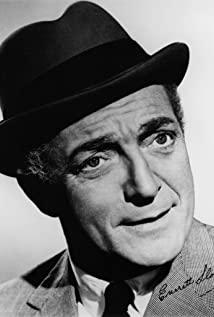"Miss Shanghai" in 1948 also has as many laces as his other film works. For example, the female star Hayworth who plays the heroine Elsa is his wife. Some people say Haihua during the filming. S and Wells have a very good relationship. They call each other "Mom" and "Dad". However, when the film was finished, it was also when they broke up, so they had to be arbitrarily associated with the ending of "Miss Shanghai". Wells used Michael's resolute sobriety and the unforgettable words of the monologue at the end of the play. For example, the filming of this film is only Orson Wells's gratuitous commitment to Columbia Pictures for the funding of his stage play "Eighty Days of the Universe", but the producer is not without annoyance when the film is completed. Ask anyone who can explain the story of the film to him with a thousand dollars. More and more, the protagonist in the film has many stories about the yacht that Jinjin said. Some scenes of the filming are even related to the black dahlias. Even in the picnic scene, Mike walked from the beach to the three "sharks". Wasn't it in the psychic Othello, or Macbeth.
The beauty and greatness of "Miss Shanghai" is the indulgent Bressonian prudence and restraint. This metaphor lacks accuracy, especially the word "indulgence", although it is inappropriate, the reason why it must be put forward in parallel lies in the film. Every scene, every picture, every line, etc. are necessary (but what we see now is only a version that has been cut for nearly an hour on the basis of Wells’s final editing). In the following, I can only awkwardly follow the development context of the film and briefly describe the reasons why I like it in some fragments and scenes.
Opening 7 minutes
From the beginning of the film to 7:04, Wells has clearly explained the main characters, basic events, and story results in the film. The interplay of dialogue and narration creates a wonderful connection between the characters in the film and the audience. Mike's narration made the event show the unalterable ending in front of the audience at the beginning of the film on the one hand, but this premature hint was easily transformed into a tempting apple. Wells compiled an exquisite 7-minute spider web, Mike, Elsa (lawyer Bannister’s wife), Bannister (Lawyer), Grisby (Lawyer’s partner), Bunu Broome (Broome, a private detective hired by a lawyer) all pounced on this Internet one after another-here, although Bannister did not see him, he only heard that he appeared in the parking lot in the conversation between Mike and Elsa, no matter what , The main characters all appear together in their own way. The case Mike mentioned in the conversation was taken by Bannister, and Mike's words also set up a bizarre mirror of fate for the world they live in: It said he's the world's greatest criminal lawyer, in fact , the world's greatest criminal. (People say that he is the greatest criminal lawyer in the world (the lawyer here refers to Bannister), in fact, the world is the greatest criminal).
The lines in Wells' films are worthy of fun. The lines are like vines entangled in tree trunks to characters and images, and they are an indispensable part of Wells games. In "Miss Shanghai", Wells played crosswords with the audience (so it was not the case in his life's work), and the fun of crosswords was never derived from the answers. For example, when Elsa told her own life experience, she said "Gamble? She's done it for a living". The lines in the film are just like the rope leading to the exit of the maze, and in the end, it is only the audience outside the screen who may fumble the rope to get out of the maze of Wales. Of course, there are some people who can't go out, like the producer.
Shark story
The character take-over dialogue forms an extremely interesting picture in front of the camera. The dialogue and the picture blend together, drawing nutrients from each other and becoming stronger. This is also one of the characteristics of Wells movies.
In the bar scene between Bannister and Mike and the other two sailors, they had a conversation about what a tough guy is. Wells took the mouth of one of the sailors to give a short speech with a sense of rhythm:
What's a tough guy?...A guy with an edge...A gun or a knife, a nightstick, or a razor, somethin' the other guy ain't got. Yeah, a little extra reach on a punch, a set of brass knuckles, a stripe on the sleeve, a badge that says cop on it, a rock in your hand, or a bankroll in your pocket. That's an edge, brother. Without an edge, there ain't no tough guy. (What is a strong person? ... to have an advantage... a gun or a knife, a baton, or a razor, something that no one else doesn't have. That is, when punching a punch, it produces a little bit more than others, a set of knuckles Copper sleeves, stripes on gloves, a police badge, a stone in your hand, or a banknote in your pocket. That is an advantage, a friend. Without an advantage, you are not a strong person.)
Then Mike accepted Bannister's request and was hired by him and his wife Elsa. The scene where Grisby made his first appearance on the voyage was also my favorite. For Grisby, Wells adopted a line drawing technique, lightly and casually outlines the character's characteristics and his relationship with the heroine: Grisby's sweet and greedy smile when he observes Elsa with a telescope, especially It was a close-up when she was pursing her mouth, and Elsa in the telescope couldn't help but remind people of the siren who confuses mortals, the banshee in the sea. However, for Mike, coming out of the water, Elsa with wet golden curly short hair is more like a combination of Salome and Medusa, and because of this, Mike gave the flashy Elsa a slap in return. ".
You can't miss the next two exciting scenes where four people played at the same time, once on the boat, and finally ended with a close-up of Elsa's face. The appearance of four people this time is like warming up for the next four people on the same stage. Bannister made the statement that money is supreme in an unbelievable way, while Mike disapproved that he often felt insecure, but this was not as good as Elsa’s touching a cappella Don’t Kiss Me, and it was precisely because of this sweetness. The bitter Kraken sang "Don't Abandon Me" and once again put Mike Net on this yacht. Is Mike really as stupid as he said in the opening remarks? Maybe mortals just can’t resist the Siren’s singing voice, but our Mike, our Wells just forgot Odysseus who put wax in his ears, or how did he get out of this muddy water? Woolen cloth. The close-up pictures of the dreamy and beautiful faces can also confuse the audience in front of the screen (Hawass was the "god of love" in Hollywood at the time). No matter what, the first time the four people were on the same stage ended in this way.
Immediately afterwards, we will hear an advertisement for a product called "Glossolusto" being broadcast on the radio, saying that the product can make the hair shine like silk and help women win the favor of men. The echo is the ending: Mike is suspected of murdering He was tried in the court, but he escaped in the middle of another jury who was walking out of the court. A female juror thought he and she were hearing the same case, and whispered the defendant in his ear: "The chief woman She must be so beautiful, she can't be the one who stole the jewelry", Mike didn't say a word-yes, Elsa is so beautiful too.
The second time the four people played at the same time was on the shore, at a picnic prepared by Bannister for his wife. The picnic trip under Wells's hand turned into an adventure and boisterous (or carnival). If the previous conspiracy was just hiding in the corner of Grisby’s mouth like a shadow, it was accidentally leaked by Grisby’s blink, and then was thrown onto the sea by Elsa’s singing, but in the picnic scene Here, everything will be exposed to the sun. As night falls, a game of ridicule and cynicism is in progress. When Mike walked from the beach to the three conspirators through the band that was playing, he seemed to have turned into Macbeth for a moment, leading the god of death to the conspirators who had summoned him. Just like the story of the scorpion and the frog that Wells told through the mouth of Akatin in "Mr. Akatin" directed by Wells in 55 years, it also takes adventure and carnival as the background, and death ends; sharks smell the blood of the same kind. The scorpion kills each other because of its nature, and the scorpion stings to death the frog who is carrying it across the river. "You can feel the breath of death on the sea. I have never seen anything worse than this until tonight. Until the picnic," Mike's shark story envelops these conspirators like the miasma of death prophecy. In the four-player scene, Mike is on one side, Elsa, Bannister, and Grisby sit on the same side, and the camera switches between Elsa and Mike several times-although he can completely retreat as an outsider. , But on the other side is his romantic love for Elsa's knight (he named Elsa Princess Rosalie at the beginning of the film)-so and so, one position and one switch show Mike's position . And Elsa's face still possessed the magical power of the sea monster under the moonlight. What’s interesting is that Wells let Elsa predict the unalterable ending with Chinese proverbs long before this scene—Human nature is eternal. Therefore, one who follows his nature keeps his original nature, in the end (Jiangshan Easy to change, hard to change in nature)-This is used as a foreshadowing, so that the whole story is covered with the mystery of Isaiah.
Aquarium and Crazy House
While Grisby brought Mike into his conspiracy, Wells let us inadvertently hear a man passing by them say to a female tourist, "Darling, of course you pay me! (Darling, of course you pay me!" mine)". And Grisby's conspiracy is to use money to lure Mike into the urn. When Grisby said "I want you to kill me" to Mike, the camera moved above their heads, Grisby's gaze crossed Mike, with a weird and fanatical look, and there was nothing behind them. Mike seemed to be on the edge of a cliff. There are many other kinds of breadcrumbs, such as the melancholy music in the open-air restaurant when Elsa went to find Mike the next night, and the sound of music coming from walking around in the moonlight with Mike until he was caught by Detective Bunum (he has always been Staying on the yacht as a crew member, on a picnic trip, Elsa discovered that he was a detective hired by her husband) and found that he was running between darkness and light. The frequent, fast-paced local music played with Elsa. Sha's mood has reached an excellent intertextuality, and these music should be used on-site, with a degree of relaxation and complement each other in the way of in-picture sound. But let's hurry up to the topic we are going to describe.
This time it’s Elsa’s invitation. It seems that in the aquarium, our Elsa can still use the magic of her sea monster. Against the backdrop of the sparkling water pattern, Wells cleverly creates the same foldable window. But it has a more tender and silent contrast effect, and in the end Mike has been completely in the dark, like a silhouette and kissing Miss Siren affectionately. Let us recall again Mike’s narration at the opening "That's how I found her, and from that moment on, I did not use my head very much, except to be thinking of her. (This is how I met her, since then I didn’t use my brain much except thinking about her.)" Mike had to wait until he touched the pistol in the Elsa purse in the theater in Chinatown before he really woke up, but he was joking because he was in court. He swallowed Bannister's painkiller and fainted.
The Crazy House is the end of the film, and only Bannister, Elsa, and Mike are left here. Killed by him, Elsa killed Grisby in order to prevent possible exposure of the conspiracy, but Mike became the scapegoat for the whole incident). Mike in the mad house seems to be in a surrealist dream. Elsa lost the shelter of the water and also lost the magical power of seduction. At this time, her expression no longer had that lovely and pitiful look. Because of the failure of her plan, the loss of control of the situation was completely exposed. Nature, and coldly accused Mike of why he couldn't try to understand her. In the game room with countless mirrors, Wells used mirrors to split, copy, and overlap Bannister and Elsa into countless images to reflect the inner world of the characters. There is no Mike in the mirror, he is involved in this conspiracy, but Wells also used the mirror as a prop to exclude him from the conspiracy-he is just the person who tells the story of the shark, not the shark. When Bannister and Elsa were shot down by each other, Mike became a witness (the audience or the director) and turned on the lights in the mirror room, just like turning on the lights for the end of the show on the stage. Elsa came out of the mirror room injured, Mike followed. Elsa immediately fell to the ground, but Mike went straight to the corner of the room, with his back to Elsa and his back to the camera. The camera shoots at an elevation angle, so that we can not only see Elsa lying on the ground, but also Mike's whole body in the corner. In such a small room, Wells never forgets to create the effect of depth of field. This scene It is a completely non-story expression that interprets Mike's position as an outsider at this time with a clear stage-style dramatic effect. At this time, Wells used Mike's mouth to divide the insurmountable gap between Mike and Elsa in two different worlds. At this time, Elsa's face became distorted due to pain and lost its luster, and one was crawling in this world. Here, a standing in this world, Mike said, "None of us will lose, if we quit." When Mike was about to get out of this crazy house, Elsa shouted "I don't want to die" in the last struggle. The revolving fence casts a shadow on Mike in the morning sun, putting Mike in another possible mystery. Among them, however, the Sea-Monster couldn't display magic power on the land, Mike retreated all over, and walked to the empty, empty and cold street.
According to the genre, "Miss Shanghai" is definitely a noir film, conspiracy, woman, murder.... However, Wells's movies are completely Wells's, and all of his movies are nothing more than a personal autobiography. He can always move in and out of movies freely, and his works are like twins to him. Interested readers can also learn about this great director and his works from the Chinese translation of "Orson Wells-Life Story" published this year.
November 08
View more about The Lady from Shanghai reviews


